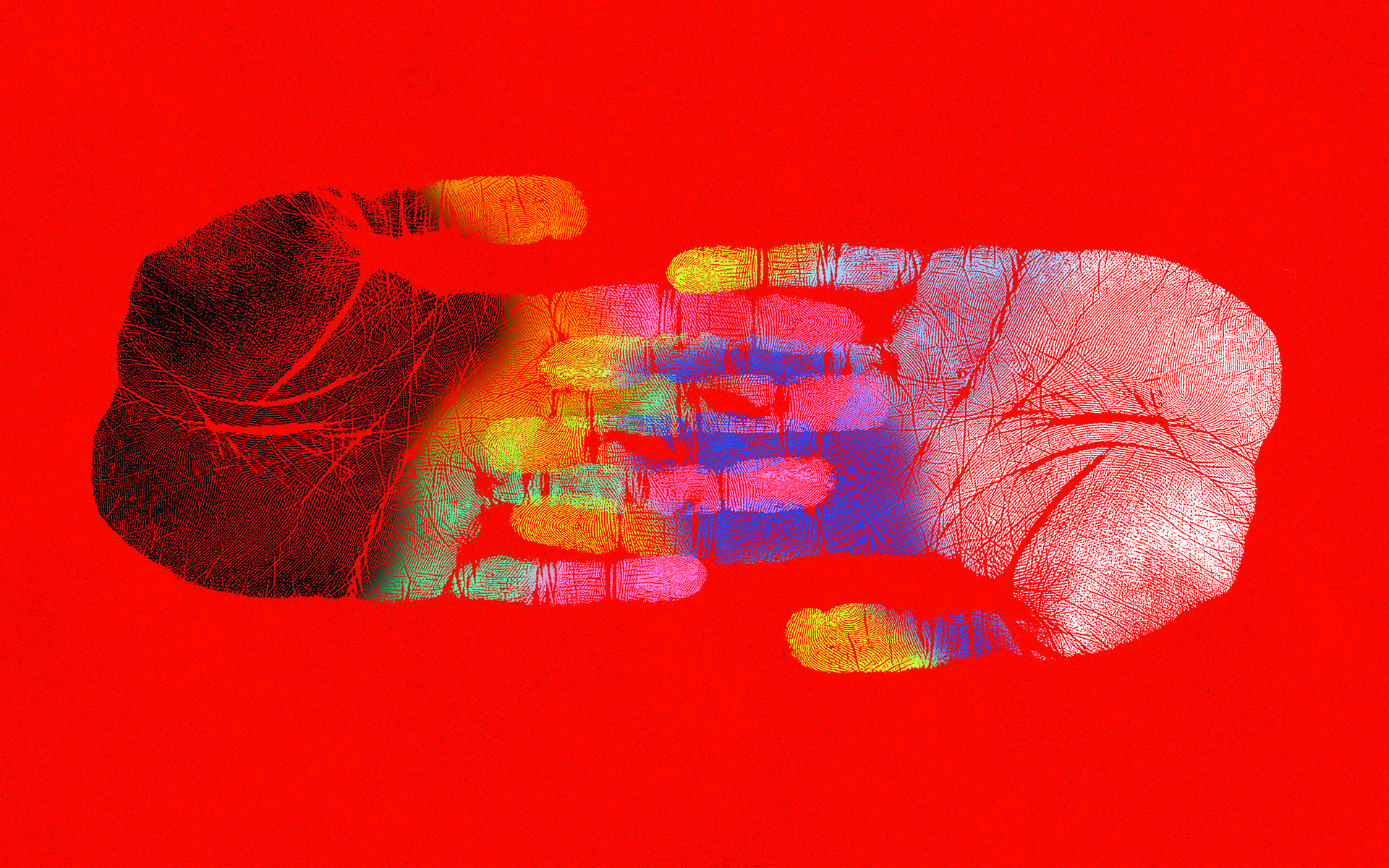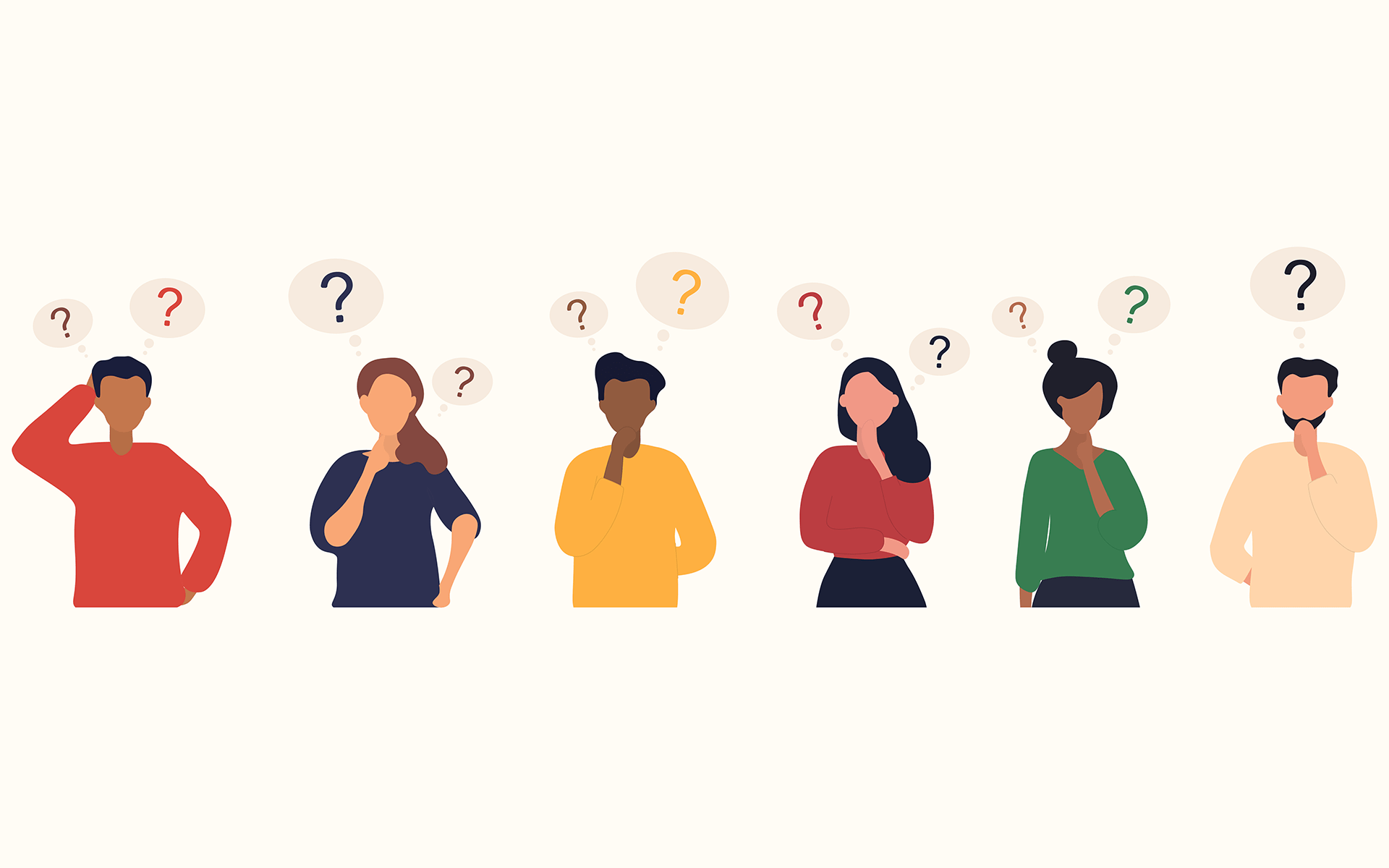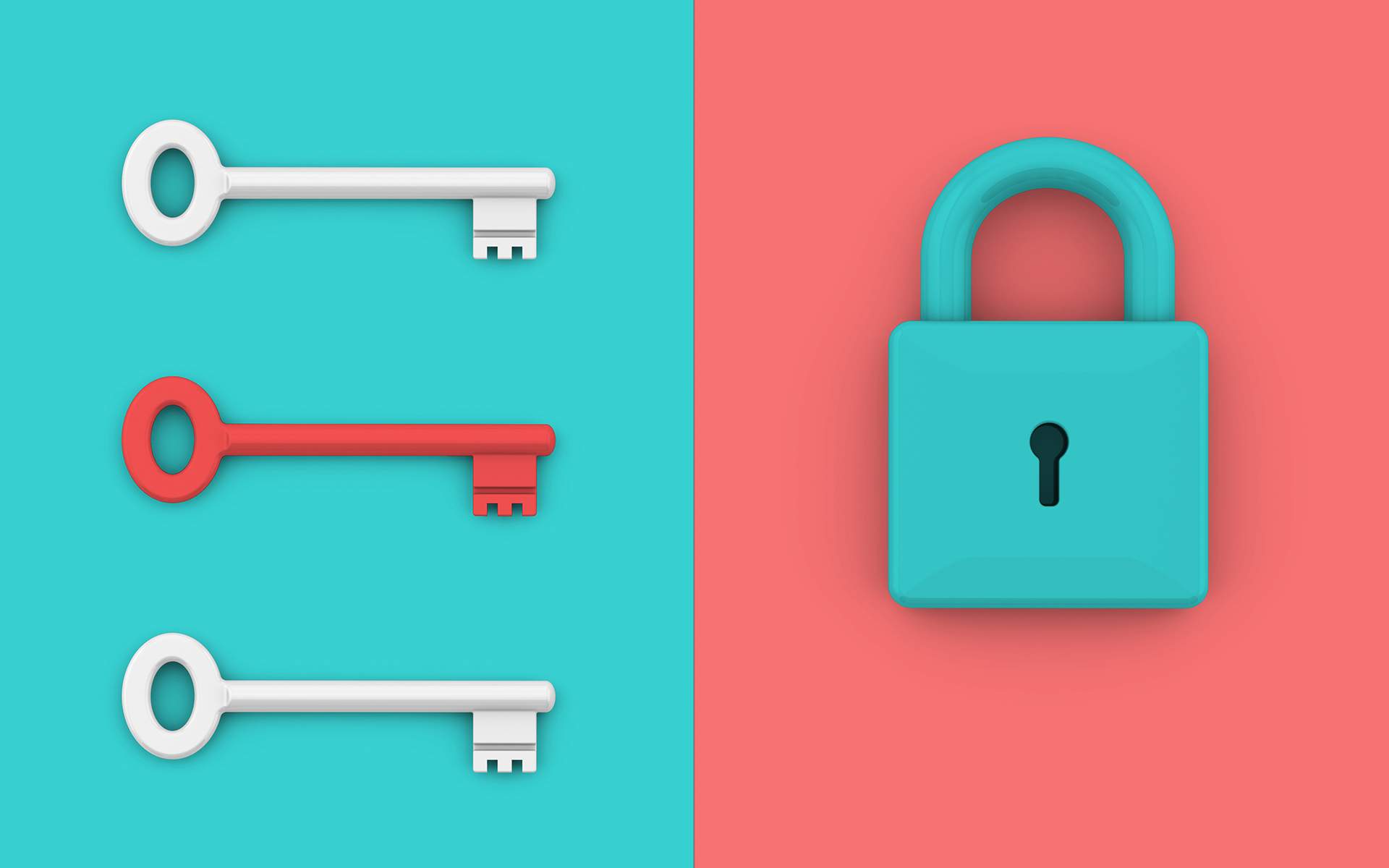It seems reasonable to think that, if we believe firmly that people of all racial identities should be treated equally, we won’t perpetuate racial bias. Unfortunately, our consciously held beliefs may not always align with our mental and behavioral patterns. Society, culture, media, and power structures can feed us subtle (and not-so-subtle) racist messages, and these messages, repeated over time, create associations in our minds that instill prejudice without us realizing it—even if we don’t believe these ideas consciously. This is known as “implicit bias.” We can work toward racial equity and justice through active engagement in our communities, and also in ourselves—and when we do, we need to be aware of, and work to shift, our implicit associations.
Studying Implicit Bias
A tool scientists use to study unconscious biases is the Implicit Association Test (IAT), designed to measure the strength of association between concepts in memory. In this computerized test, participants are asked to categorize two sets of stimuli as fast as possible according to the instructions. To probe racial bias, one must assign Black or white faces into positive or negative categories. The idea is that if someone has an implicit bias against Black people (e.g., they associate “Black” with “bad”), they will take longer to press a button to assign Black faces into a positive category. The delay is a result of the brain being slightly slower to process this grouping, because it runs counter to the existing association. Along the same lines, they would be faster to categorize white faces as positive, because this agrees with the existing association in their mind. While there are debates about how much IAT scores correlate with real-world behavior, the test remains a scientifically useful (and commonly employed) tool to probe these kinds of unconscious associations in our minds.
Studies using the IAT in US populations from Harvard’s Project Implicit consistently find evidence for pro-white/anti-Black bias. Perhaps more disturbingly, this is even the case among Black people, although the bias is less prominent than among white people. Notably, these implicit biases are not strongly correlated with people’s explicit reports of their attitudes about race, suggesting the biases operate without awareness.
Unconscious patterns and reductive labels are the fuel for our implicit biases.
Implicit biases can affect our decisions and behavior (although research shows the link between implicit bias and behavior isn’t consistent). In a pair of studies involving an economic trust exercise, participants who had high pro-white bias on IAT scores chose to “invest” less money in a Black partner. Implicit bias also affects healthcare: Providers’ implicit bias has been associated with racial disparities in treatment recommendations, pain management, empathy, and poorer patient-provider communication. Other work shows that in communities where people have stronger racial bias, Black people are killed by police at disproportionately higher rates, suggesting a society-level effect of implicit bias on behavior.
Evidence of racial bias is also reflected in our brains. An important early neuroimaging study scanned the brains of white Americans while they viewed unfamiliar Black vs. white faces. Researchers found not only that activation of the amygdala (a brain region associated with processing highly salient and/or threatening stimuli) was higher for Black faces than for white faces, but the level of participants’ amygdala activation was correlated with their level of implicit bias against Black people. In other words, the more implicit racial bias people had, the more their amygdala responded to Black faces. The level of amygdala response did not correlate with participants’ self-reported (i.e., conscious) racial attitudes, suggesting that the brain activity reflected unconscious processes.
It’s important not to reduce subjective experience into brain activity; what the amygdala activation in such experiments means for a participant’s experience is highly complex and remains in question by researchers. In addition, other brain systems are certainly implicated. Nonetheless, the amygdala remains a marker of interest in how prejudice might be reflected neutrally, and some recent work has replicated the link between amygdala activity and out-group bias.
A Mindful Way Through Bias
What the research appears to suggest is, despite someone holding a conscious belief in racial equality, significant factors—psychological, cultural, and neural—can sway our perception and actions toward inequality. Contemplative practices, research also finds, may hold part of the answer to reducing implicit bias, through changing our deeply held mental patterns.
It is easy to move through our lives and miss the ways we subtly categorize people based on their relationship to us, their appearance, behaviors, and other external factors. These unconscious patterns and reductive labels are the fuel for our implicit biases. Mindfulness practices such as loving-kindness or compassion can help us learn to move beyond these limited, reductive labels of others by recognizing that, at base, we all want to be happy and to avoid pain and suffering. Emphasizing our common humanity helps to take us beyond the scope of our individual preferences. “In loving-kindness practice, when you say ‘May you be happy,’ you don’t necessarily mean ‘I want you to be happy.’ Rather, the sense of self is somewhat removed: You wish them well independent of your self-interests,” says Yoona Kang, research director of the Communication Neuroscience Lab at the University of Pennsylvania’s Annenberg School for Communication.
By choosing to engage in practices that foster attitudes of equality and compassion, we can help shift the unconscious associations that drive our behavior.
In 2014, Kang (then at Yale) conducted a study where volunteers were randomly assigned to six weeks of either practicing loving-kindness meditation, discussing loving-kindness with the same teacher but not practicing it, or a waitlist control group. Before and after the six weeks, participants took IATs intended to measure bias against Black people and homeless people. At the end of six weeks, the study found that implicit bias against both Black people and homeless people was reduced (compared to baseline levels)—only for those participants who had been practicing loving-kindness, but not for those in the other two groups. “These results were very encouraging,” Kang says, “because statistically, the implicit bias score was not significantly different from zero in the loving-kindness practice group. Of course, this was a one-time measurement and implicit bias fluctuates over time, so we can’t say it’s gone forever. But there was a strong effect.” The fact that the discussion group didn’t change suggests that merely learning, thinking about, and discussing compassion and equality may not be enough to change deep-rooted biases.
Another study, at the University of Sussex, found that just seven minutes spent directing loving-kindness toward a photo of a Black person was enough to bring about a reduction in implicit anti-Black bias. This work suggests that a very short emotional induction can change implicit bias toward a targeted group, and that generating other-focused positive emotions is important to make this shift.
Loving-kindness isn’t the only meditation practice that can reduce bias. In a 2016 study, people who engaged in 10 minutes of mindfulness meditation showed significantly less racial discrimination than controls in a trust game. In a different group, the same mindfulness intervention reduced racial bias on the IAT compared to controls, supporting evidence of behavioral changes. Further analyses suggested the reduction in implicit bias stemmed from a “weakening of [participants’] automatic associations” between these racial groups and negative ideas.
A recent study probed the ability of mindfulness training to affect the way we form automatic associations. Participants were exposed to a puff of air in the eye that was paired with a sound—not surprisingly, they quickly began to protectively blink in response to the sound alone, associating the sound with the air puff. Those who trained in mindfulness, however, had fewer of these conditioned blink responses, and a longer delay before the first such response.
Choose Compassion
Researchers suggested that mindfulness may allow us to be more “in the moment,” responding to each experience as fresh and not relying so much on past associations. Lead researcher Adam Hanley notes this could have major implications for negative automatic responses like those stemming from implicit bias. “I think a lot more of our behavior is conditioned than we sometimes acknowledge,” says Hanley, speaking on the Mind & Life Podcast. “Anything we practice gets automatic.”
How long might these effects last? A 2020 study trained preservice teachers for one semester in a combined mindfulness and connection (i.e., loving-kindness) practice, and monitored the effects on racial bias as measured by the IAT. Compared to standard teacher education, this intervention reduced implicit bias against child and adult Black faces—and this effect remained six months later, with no additional training. Given the powerful impact of teachers’ perceptions on students’ performance, well-being, and success, these results highlight options for meaningful shifts in teacher education.
While this research is still in its infancy, these studies point to exciting possibilities for change. Additional studies are needed to learn more about the potential long-term effects of various forms of meditation on reducing implicit bias, as well as whether these changes are reflected on behavioral and neural levels. Still, as we continue to push for social and political change, we can be encouraged to know we can also take individual responsibility for our own minds. By choosing to engage in practices that foster attitudes of equality and compassion, we can help shift the unconscious associations that drive our behavior.
read more
How Mindfulness Can Give Us the Courage to Examine Bias
Mindfulness can help us tap into the courage and compassion necessary to recognize our own prejudices and sit with them long enough to find a thoughtful way forward.
Read More
How Being Held Accountable Is an Experience of Vulnerability
Amanda Hester, Director of Operations and Business Development at Mindful, explores why mindfulness is key to sitting with feelings of shame and blame.
Read More
A 6-Minute Loving-Kindness Meditation to Expand Your Awareness
Tita Angangco, cofounder of The Centre for Mindfulness Studies, shares a loving-kindness meditation that serves as an ignition to spark change.
Read More










